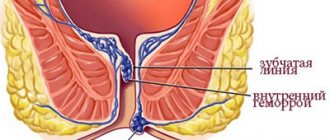Every caring mother tries to give her baby the best. Fearing for his health, a nursing woman carefully monitors every product she eats, and even more so the medications she takes. Particles of active substances can reach the baby, so questions regarding this or that medication are quite logical. A separate point is made about Aspirin during breastfeeding: can it be taken or not?
Taking Aspirin while breastfeeding is not recommended.
Indications for using Aspirin
The usual remedy acts not only as an antipyretic, but also has an analgesic and anti-inflammatory effect. In addition, the drug leads to a reduction in thrombus formation. The scope of its application is quite wide - this includes any manifestations of pain, inflammation and infectious lesions of the body. The remedy is indicated for the following symptoms:
- Headache, toothache, muscle, joint and menstrual pain in women.
- Angina pectoris.
- Increased body temperature.
- Thrombosis.
Indications for use and its properties
The reasons for taking acetylsalicylic acid and its beneficial properties were discovered almost 130 years ago. Its ability to lower body temperature, relieve inflammation, pain, antiplatelet properties that help avoid blood vessel thrombosis, cope with neuralgic symptoms, rheumatism, and angina pectoris have allowed the drug to become very popular.
All beneficial therapeutic effects are achieved thanks to the active substance. Despite a number of contraindications, the use of the drug only in adults is safe, and only in small quantities, if the person does not have diseases of the gastrointestinal tract.
The same properties of the drug that help achieve positive dynamics in adulthood make it undesirable and potentially harmful in early childhood. The ability to help with migraines, dental pain, and headaches makes aspirin a sought-after medicine. But for a newborn, acetylsalicylic acid, especially when breastfed, is extremely dangerous, even in the small amount it receives from mother’s milk.
Contraindications and possible adverse reactions
Like all medicines, Aspirin (acetylsalicylic acid) has a number of side effects. In addition, the lactation period is considered one of the main contraindications for taking the drug. The following diseases complement this list:
- Stomach or intestinal ulcer.
- Diabetes.
- Asthma.
- Pregnancy period.
- Allergy to any component of the product.
- Acute kidney or liver failure.
- Frequent bleeding.
Aspirin is also contraindicated in children under 15 years of age. Taking medication in these cases can cause a number of serious complications.
The potential harm to the child when the mother takes Aspirin, as a rule, is considered to exceed the positive effect on her in the presence of a number of analogues approved for use during breastfeeding.
General information about the drug
Aspirin is a non-steroidal analgesic anti-inflammatory drug with a long, proven reputation and countless beneficial properties. The abundance of dosage forms produced with its content made it possible to use the first known NSAIDs (non-steroidal anti-inflammatory drugs/agents, NSAIDs, NSAIDs, NSAIDs, NSAIDs) even for diseases that were considered absolute contraindications.
This is a non-narcotic pain reliever that can prevent blood clots. It is taken for the prevention of cancer and atherosclerosis, for arthrosis and rheumatoid arthritis, as a safe pain reliever and antipyretic. As part of combination drugs, Aspirin can relieve a hangover, and for migraines/neuralgia it is one of the drugs of choice.
Often pharmacy Aspirin is a mono drug, produced in tablets of standard packaging, but sometimes substances are added to it that reduce side effects, then a drug for widespread use is obtained. Aspirin is acetylsalicylic acid, which becomes dangerous if ingested by an infant.
Is it possible to take aspirin while breastfeeding?
And yet, during lactation, Aspirin can quickly enter the mother’s milk and lead to negative consequences for the baby. The active substance that is part of the drug prevents the production of thromboxane A2, which in turn leads to the dilution of blood clots. Penetrating into the child's body with mother's milk, these substances provoke changes and malfunction of the circulatory system, which affects blood clotting. Hematomas may also appear in various areas of the skin, which are caused by hemorrhages. In the most difficult cases, hemorrhagic diathesis may be diagnosed, accompanied by internal bleeding.
In addition, a long course of taking Aspirin by the mother reduces the protective functions of the child’s stomach, which prevent the effects of acids, which can also cause bleeding in the stomach.
The use of the drug by the mother can lead to complications such as:
- hearing problems;
- anemia;
- asthma attacks - an allergenic substance entering the child’s body with milk provokes a runny nose or spasms in the bronchi;
- renal failure;
- a complication with the medical name Reye's syndrome (damage to the brain and liver);
- disturbances in the area of blood circulation, the necessary blood elements are formed in smaller quantities;
- negative effect on the digestive system and enzyme production.
Such global changes in life-forming organs or systems cause an irreversible reaction in the child’s body, even death, so you should not take the drug during breastfeeding .
However, there is another opinion, shown in the video below:
Why you can’t take aspirin during lactation: what is its danger for the baby and nursing mother
You should not take Aspirin while breastfeeding. What kind of drug this is, why you shouldn’t drink it, what harm it causes to health and how it affects the condition of an infant, you can learn from this article.
Use of the drug
Aspirin is an anti-inflammatory non-steroidal drug that is produced on the basis of acetylsalicylic acid. Acetylsalicylic acid should not be taken during breastfeeding.
Aspirin is used for:
- migraine;
- high temperature;
- rheumatism;
- angina pectoris;
- thrombosis.
This medicine has effective antiseptic and anesthetic effects. But this drug cannot always be used to relieve pain or lower fever. It is better for a nursing mother not to take this medication, as it can negatively affect the health of the newborn.
How does the drug affect the children's body?
Aspirin is a broad-spectrum drug. Once in the baby's body through breast milk, it can affect the functioning of almost all the baby's organs.
So, this remedy can reduce blood clotting. This is due to the fact that acetylsalicylic acid thins the blood to cope with blood clots. Aspirin can also affect the development of hemorrhagic diathesis. It sometimes provokes internal bleeding, which can lead to dire consequences. This circumstance suggests that it is better for a young mother not to use the medicine during lactation.
Acetylsalicylic acid can negatively affect the functioning of the child’s gastrointestinal tract. It reduces the production of a substance responsible for the protective properties of the gastrointestinal mucosa. The baby may experience gastric bleeding, which is also very dangerous for his life. Especially if you take Aspirin in the first months after childbirth.
A breastfeeding woman should not take this drug, as it can cause the following side effects in newborns:
- hearing impairment;
- bronchial asthma;
- iron deficiency;
- kidney diseases;
- Reye's syndrome.
The concentration of Aspirin in breast milk can significantly affect the baby's health. This medicine is a strong allergen. It can cause bronchospasms, a runny nose, and even the formation of nasal polyps.
Acetylsalicylic acid can reduce the level of red blood cells, platelets, and hemoglobin in the blood. This should not be allowed to happen to a nursing mother after giving birth. After all, her body is very weakened, and anemia can worsen its condition. This also applies to the baby’s body.
All of a child's organs can be exposed to the dangerous effects of Aspirin. Problems with the kidneys and liver are especially common. It does not matter how much medicine the mother took while breastfeeding.
What can replace the drug for hepatitis B?
From all that has been said above, we can conclude that Aspirin has a detrimental effect on the body of a nursing woman and her baby. So why put yourself in danger if there are other medications that will perfectly cope with high fever? No matter how many times this drug helps the mother before pregnancy, it is worth giving it up during breastfeeding.
During lactation, many doctors advise taking paracetamol. It is compatible with breastfeeding and causes virtually no side effects.
In addition, you can use ibuprofen. But you cannot use these medications on your own. Only your doctor can tell you how much and for how long you can take them.
Following some rules will help a young mother cope with a high temperature:
- It is necessary that the room temperature is about 20 degrees, and its humidity is not lower than 60 percent.
- You can only drink an antipyretic if your body temperature has exceeded 38.5 degrees.
- Tea with raspberries and honey will help you cope with the fever. You should be careful when drinking herbal teas, as some herbs can cause a negative reaction in your baby.
If these remedies do not help a nursing woman reduce her temperature or reduce pain, then she should definitely consult a doctor. There are times when taking antibiotics is indispensable. Self-medication during breastfeeding is unacceptable, since medications that are familiar to everyone can harm the still fragile body of the newborn. These include Aspirin, which is contraindicated during breastfeeding.
AmyMama.ru
Permitted analogues for gw
Since it is not recommended to drink Aspirin during breastfeeding, and it is necessary to somehow treat the unpleasant symptoms of the disease, you can consider a number of medications approved for lactation:
- Paracetamol - fights fever, relieves inflammation and attacks of pain, while being safe for babies;
- Ibuprofen - often, nursing mothers are prescribed the drug in accordance with the children's dosage;
- traditional medicine.
In any case, treatment should be carried out by a doctor, since independent use of medications or herbal infusions can cause an allergic reaction in the baby or reduce milk production.
Taking Aspirin should be postponed until after lactation, as the drug causes significant harm to the baby. For symptoms of ARVI and colds, it is better for a nursing mother to use approved similar medications.
What to do if the pill has already been taken: should I skip feeding or not?
If a woman takes Aspirin while breastfeeding, it is recommended to skip the next feeding. The active component of the drug is eliminated from the body within several hours. After just 20 minutes, the amount of active substance in the systemic circulation is halved. The more time passes between using the drug and subsequent feeding, the less likely it is that Aspirin will have a negative effect on the newborn.
If long-term use is necessary, doctors recommend temporarily stopping lactation and transferring the baby to an adapted formula appropriate for his age. If a woman plans to resume breastfeeding in the future, she must pump regularly. Otherwise, during treatment with Aspirin, the amount of breast milk will gradually decrease.
How does Aspirin work?
This type of drug is used as anesthesia and to prevent inflammation. These properties have made it extremely popular for several decades. Our mothers also used acetylsalicylic acid to eliminate colds and viral diseases.
The effect of the drug is noticeable immediately after use. It is absorbed into the gastrointestinal tract within a few minutes. However, acetylsalicylic acid penetrates quite quickly into breast milk. The woman should be informed in advance that the medicine should not be taken during pregnancy and lactation.
The effect of Aspirin on the baby's body
We remind you that it is best to avoid using the drug when breastfeeding. It penetrates milk quite quickly and changes its composition in a negative way. Naturally, after this, the harmful components will end up inside the baby’s digestive system. There have been recorded cases where acetylsalicylic acid put infants into poor condition.
To eliminate headaches, you must use only safe drugs
Under the influence of key ingredients in the body, the amount of thromboxane A2 decreases. Thanks to this, a blood clot cannot form in the vessels. The same effect will be exerted on the baby’s body through breast milk. The situation is dangerous because it can lead to a number of violations and deviations. Aspirin negatively affects the blood clotting process.
If a woman does take Aspirin, then after a certain time hematomas may appear on the child’s skin. These formations are the result of small hemorrhages. The situation is observed against the background of dilution of blood vessels.
With regular use of the drug on the skin of a child, the risk of developing hemorrhagic diathesis increases. The disease quite often leads to bleeding and other negative consequences. For these reasons, the medicine should not be used during lactation and pregnancy.
Aspirin should not be used by nursing mothers, as its components will lead to a deterioration in the functioning of the gastrointestinal tract. Its composition reduces the production of necessary enzymes.
During the digestion process, the action of prostaglandins is necessary, which protect the stomach and its mucous membrane from the negative effects of external factors. Aspirin acts aggressively on them and can suppress them completely. The situation can lead to bleeding in the baby's stomach or intestines. The disease occurs against the background of regular medication use during breastfeeding.










